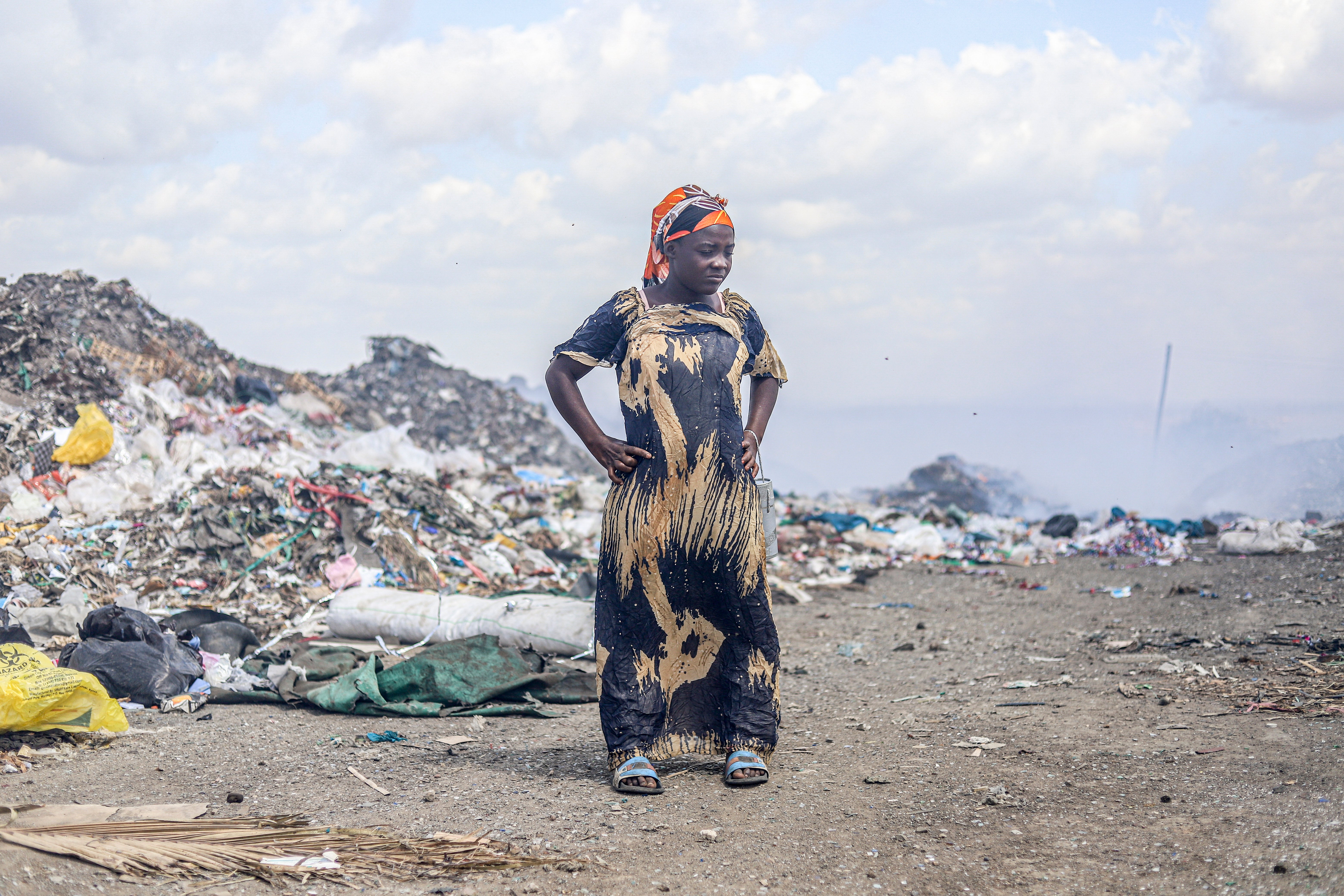Girls in Kenya ‘living and working’ on rubbish dumps after Covid-linked school closures
Exclusive: ‘When I climb onto a lorry to search for water bottles, sometimes I get cut,’ says young woman

Your support helps us to tell the story
From reproductive rights to climate change to Big Tech, The Independent is on the ground when the story is developing. Whether it's investigating the financials of Elon Musk's pro-Trump PAC or producing our latest documentary, 'The A Word', which shines a light on the American women fighting for reproductive rights, we know how important it is to parse out the facts from the messaging.
At such a critical moment in US history, we need reporters on the ground. Your donation allows us to keep sending journalists to speak to both sides of the story.
The Independent is trusted by Americans across the entire political spectrum. And unlike many other quality news outlets, we choose not to lock Americans out of our reporting and analysis with paywalls. We believe quality journalism should be available to everyone, paid for by those who can afford it.
Your support makes all the difference.Girls in Kenya are trying to make a living on rubbish dumps in the wake of school closures triggered by the pandemic, a charity has warned.
Action Aid, a leading global NGO which tackles poverty, told The Independent over 600,000 girls are estimated to be out of school in the country.
Many girls are living on a dumpsite in Mwakirunge carrying out “hazardous work” in the southeastern part of Kenya.
Dzame, who was only 13-years-old when she got pregnant and married, did not go to school as her parents could not afford to send her.
The 25-year-old said: “I was living with my parents then when they separated, I went to live with my grandmother on the dumpsite.
“I had my first pregnancy there. The father said that he didn’t want me, so I stayed at home until I got another man who was willing to marry me while I was pregnant. I was 13-years-old.
“I search for things on the dumpsite to sell here, so I can get money to buy flour. Then the next day I do the same.”
She spends her days gathering plastic bottles on the dumpsite which she then sells to make money to feed her young family. Dzame explained the work is dangerous as it sees her climb into dump trucks.
She explained she frequently obtains injuries when litter falls on her - such as recently when she was forced to go to hospital after a glass bottle cut her.
“When I climb onto a lorry to search for water bottles, sometimes I get cut,” Dzame added. “When rubbish is coming down the lorry. When I was cut by a glass bottle, I stayed here until my mother came. She gave me some money and I went to the hospital, where I was given a tetanus shot.”
Dzame said she does not know how to read or even write her own name, adding that she is eager to go to school to learn to.
She said: “If I were educated, I would help my mother. I would look for a job and my mother would remain here with her grandchildren and I would give them money for upkeep.
“If I went to school, I wouldn’t go through these problems I have now. I would be working. I would not have given birth so young. I’d be working.”
Kath Blaize-Smith, head of public fundraising at ActionAid UK, noted a girl’s future earnings rise by 18 per cent for each year that she remains in secondary school.
“Period poverty, violence on the way to school, early pregnancy and climate change are some of barriers girls worldwide face in getting an education,” she told The Independent.
“But with a good education girls have the power to change their own futures and it is one of the most effective ways of making lasting change in the world’s poorest communities.”
The campaigner explained ActionAid supports women and girls struggling to subsist due to living in poverty in over 40 countries.
“They don’t go to school from there. They go to look for things in the dumpsite. I feel bad. I wish they would go to school to get educated.”
“This includes ActionAid-supported catch-up centres in Kenya, where 5,000 girls across the country are currently learning literacy and basic skills in vocations such as business, electronics, and tailoring, before moving on to formal education or further training,” Ms Blaize-Smith added.
Anisa, a 10-year-old, said she also lives and works on the dumpsite but wishes she did not - adding that some fellow pupils laugh at her for living there.
“I have eight siblings, four boys, and four girls, and we stay here. We just live here, we look for plastics to sell for me to be taken to school,” she said.
“My friends who live on the dumpsite, I just see them playing, washing utensils, they don’t go to school from there. They go to look for things in the dumpsite. I feel bad. I wish they would go to school to get educated.”
It comes after a troubling report, shared exclusively with The Independent, found half of girls are at risk of never returning to school in Africa and Asia in the wake of the coronavirus emergency.
The study, which polled 24,000 girls, warns families will prioritise pushing their daughters into marriage at a young age or making them do child labour over returning to education once schools can safely open up.
Room to Read, an organisation which helps children in low-income communities develop literacy skills that carried out the study, said teenage girls had already dropped out during the Covid-19 crisis and this was likely to be the direct result of economic hardship.

.jpg?quality=75&width=230&auto=webp)

Join our commenting forum
Join thought-provoking conversations, follow other Independent readers and see their replies
Comments